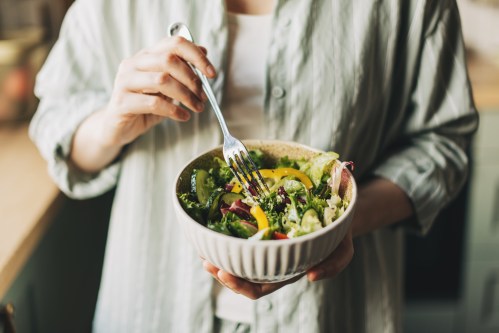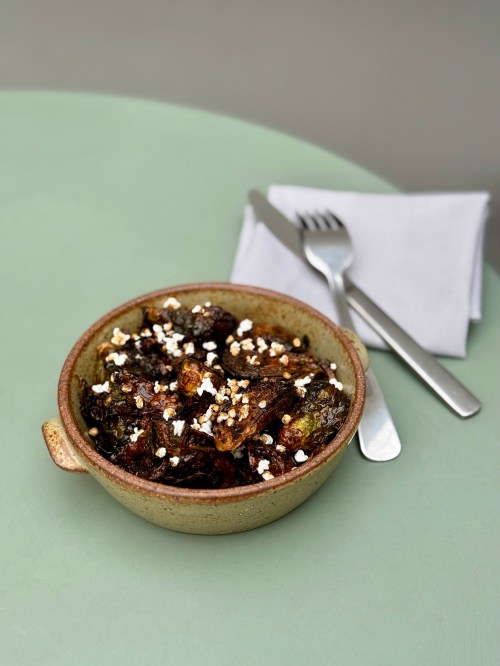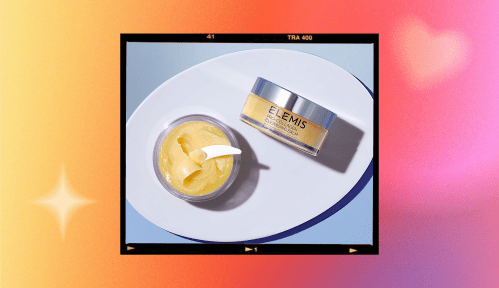There have never been more options available for those who have struck gluten from their diet—cauliflower gnocchi, cauli-pizza crust, a seemingly endless variety of alt-pastas, gluten-free bread that doesn’t taste like sawdust… the list goes on.
Experts in This Article
founder and director of Real Nutrition
nutrition expert and founder of Solluna
registered dietitian specializing in celiac disease
registered dietitian and author of The Better Period Food Solution.
But while deciding to stop eating gluten—a protein found in wheat, barley, and rye (think of it as the glue that holds everything together)—has become trendy in recent years, it’s not necessarily the best choice everyone. “Approximately three million Americans have celiac disease, a serious autoimmune condition that is triggered by gluten,” says Kimberly Snyder, New York Times bestselling author, nutrition expert, and founder of Solluna.
Outside of those with celiac, some people may have what’s known as a non-celiac gluten sensitivity—Tracy Lockwood-Beckerman, RD, puts the number at about 6 percent of the population, aka as many as 20 million people. (These people have tested negative for celiac, but still experience digestive distress when they eat gluten.)
If you don’t fall into one of the two aforementioned camps, you might be wondering: Well, what happens to your body when you stop eating gluten? Are there benefits to be reaped even if you don’t have a sensitivity? Below, Snyder and Amy Shapiro, MS, RD, CDN, founder of Real Nutrition, share what you need to know before ditching gluten for good.
Who shouldn’t eat gluten?
Although a gluten-free diet may be #trending, that doesn’t mean that it’s the best thing for you unless you, indeed, have a gluten intolerance like celiac disease. In fact, if you don’t have a gluten allergy or sensitivity, cutting out gluten entirely from your diet may have adverse effects instead of positive ones. “[Side effects can include] increased hunger and constipation, as many products marked as gluten-free are void of fiber, contain excess calories, and are overly processed,” Shapiro says. “If you don’t need to eat gluten-free, then you shouldn’t,” Shapiro says.
Lockwood-Beckerman agrees. “Going gluten-free just for gluten-free’s sake is as much of a trend as fanny packs or those tiny useless sunglasses that everyone seems to be wearing,” she says. “It’s possible you’re losing out on some valuable nutrients.”
What are the first signs of being gluten intolerant?
Although giving gluten the axe isn’t for everyone, if you do suspect that you may have some sort of intolerance or sensitivity to it, it may be worth doing a bit of trial and error (and looking into gluten intolerance tests) to find out for certain. To that end, Snyder advocates that everyone should shift to a gluten-free diet at one point or another—at least for a trial period—because many gluten sensitivities can easily fall under the radar. With a gluten sensitivity, a person can consume a certain amount of gluten before experiencing any side effects, so it’s difficult to test and diagnose, Snyder says. However, to get a proper diagnosis, it’s important to talk to your doctor before making the decision to stop eating gluten entirely and the appropriate next steps for your well-being.
Meanwhile, Tayler Silfverduk, RD, a registered dietitian specializing in celiac disease, also underscores how tricky diagnosing a gluten intolerance can be. “The symptoms of non-celiac gluten sensitivity largely overlap with other gluten-related disorders like celiac disease. They can range from neurological symptoms such as joint pain and brain fog, to digestive such as bloating, constipation, and reflux. The first signs of gluten intolerance are often not feeling well after eating but not being able to pinpoint why,” Silfverduk says. However, even if you may be experiencing discomfort after consuming gluten, inconclusive test results add another layer of difficulty in effectively diagnosing a gluten intolerance. “Food intolerances in general are harder to decipher because usually all normal lab work and testing is coming back normal but the person still feels sick,” Silfverduk says.
So, to hopefully make things a little clearer, Silfverduk stresses the importance of testing accordingly. “It’s important to emphasize non-celiac gluten sensitivity is an exclusionary diagnosis, meaning you must be tested for celiac disease and a wheat allergy to confirm it’s not either of those things before you can confirm gluten sensitivity,” she says. So, why does this matter so much? “The treatment for celiac disease, a wheat allergy, and non-celiac gluten sensitivity look different,” Silfverduk says. In short: having the correct diagnosis is essential to getting the correct treatment.
The potential benefits of going gluten-free
As we previously mentioned, Silfverduk stresses that there are no benefits to living gluten-free if you don’t have a gluten-related disorder like celiac disease or non-celiac gluten sensitivity. “In fact, there are many cons to going gluten-free if you don’t have a gluten-related disorder like feeling socially isolated in a gluten-centered culture and more barriers to accessing essential nutrients,” she says. However, if you do have a gluten-related disorder the benefits include reduced symptoms, symptom prevention, and reduced inflammation, to name a few. More on that ahead.
If you have a sensitivity, you could see an improvement in your digestive health (and more)
“If you are going gluten-free because you have been diagnosed with celiac disease, then you may feel relief of symptoms including GI issues, weight loss, improved nutrient absorption, a decrease in aches and pains and headaches, and increased energy,” Shapiro says. “If you have or suspect you have a gluten sensitivity, then removing it may decrease gas.”
It could help reduce inflammation
If you don’t have celiac, you potentially can still see your health improve upon giving up gluten. (Although it’s not for certain.) “When you stop eating gluten, you may experience lowered inflammation, clearer skin, more energy, and less brain fog,” Snyder says. “This is because gluten can trigger inflammation in the small intestine, which leads to a number of issues in the body like poor digestion, difficulty absorbing nutrients, and autoimmune disorders.”
What foods do you avoid on a gluten-free diet?
According to Silfverduk, gluten is commonly found in wheat, barley, and rye. That’s why she recommends avoiding foods high in gluten like: wheat/rye or barley based-breads, crackers, cookies, cakes, pasta, and more. Other lesser-known foods that can trigger a gluten allergy include: soy sauce (it’s often made with wheat), and some chocolate (it can have barley extract in it). That said, Silfverduk recommends always taking a close look at the nutrition label to determine whether or not an food is gluten-free, which can be tricky (she offers a course to help navigate this process).
Also, keep in mind that gluten is gluten no matter where you go. “If it’s truly a gluten-related disorder, regardless of where you are eating gluten you must avoid it. This is also important to note as many people will say European gluten does not trigger them, but gluten is gluten, whether it’s from wheat grown on farms in Italy, or barley grown in the United States,” Silfverduk says.
What happens if you don’t eat gluten for a week?
When it comes to going gluten-free, patience and consistency will ultimately yield the best results. “If you don’t eat gluten for a week and you have a gluten-related disorder, you may notice a reduction in symptoms and a clearer mind. However, it’s important to note that it can take upwards of a few months for people to notice any differences in how they feel after going gluten-free with a gluten-related disorder,” Silfverduk says. So, if you aren’t experiencing life-changing results in just a week, it doesn’t necessarily mean you’re doing anything wrong. After all, everyone’s body responds differently. However, to ensure any symptoms (positive or negative) you do experience aren’t merely a placebo effect, Silfverduk recommends supplementing your diet with the necessary nutrients to fill any voids that cutting out gluten may leave behind—namely, eat enough fruits and veggies.
Other things to keep in mind if you stop eating gluten
Make sure you still get your fiber
If you decide to ditch whole wheat bread and crackers to go gluten-free, you can risk losing out on some much-needed fiber, which is essential for, ahem, regular. So if you don’t bring new, healthy sources of fiber into your diet, you may run into a wee bit constipation problem. To prevent that, Snyder recommends eating more fiber-filled whole foods such as fruits, vegetables, chia seeds, lentils, leafy greens, and gluten-free whole grains. But don’t let this all discourage you; making a delicious gluten-free breakfast or cooking gluten-free friendly meals doesn’t have to be hard, especially when your Instant Pot can help.
Take care of your gut health
Once you kick gluten to the curb, your digestion may go through an adjustment period. To give it some love and support and accelerate its healing process, Snyder encourages taking daily probiotics. “The balance of the bacteria in your gut affects your skin and assists with digestion, leading to less congestion and fat storage in the body,” she says.
Remember: Gluten-free doesn’t necessarily equal healthy
Again, we reiterate that one of the biggest misconceptions on the topic is that if something is labeled “gluten-free,” it’s automatically a healthier alternative (we’re looking at you, gluten-free cookies). By now, you can consider this myth officially debunked. “These foods are still processed, lack nutrients, and often contain loads of refined sugars, oils, and sodium,” Snyder says. So, to really reap the benefits of going gluten-free, choosing the right gluten-free foods or gluten-free snack, and ingredients will ultimately do the trick. “When going gluten-free, focus on substituting with whole, unrefined grains like quinoa, brown rice, and millet, and enjoy whole food snacks like sliced veggies or kale chips, which are naturally free of gluten,” she says. First up? Gluten-free sourdough. Swoon.
Learn more about what happens to your body when you stop eating gluten:
Sign Up for Our Daily Newsletter
Get all the latest in wellness, trends, food, fitness, beauty, and more delivered right to your inbox.
Got it, you've been added to our email list.











